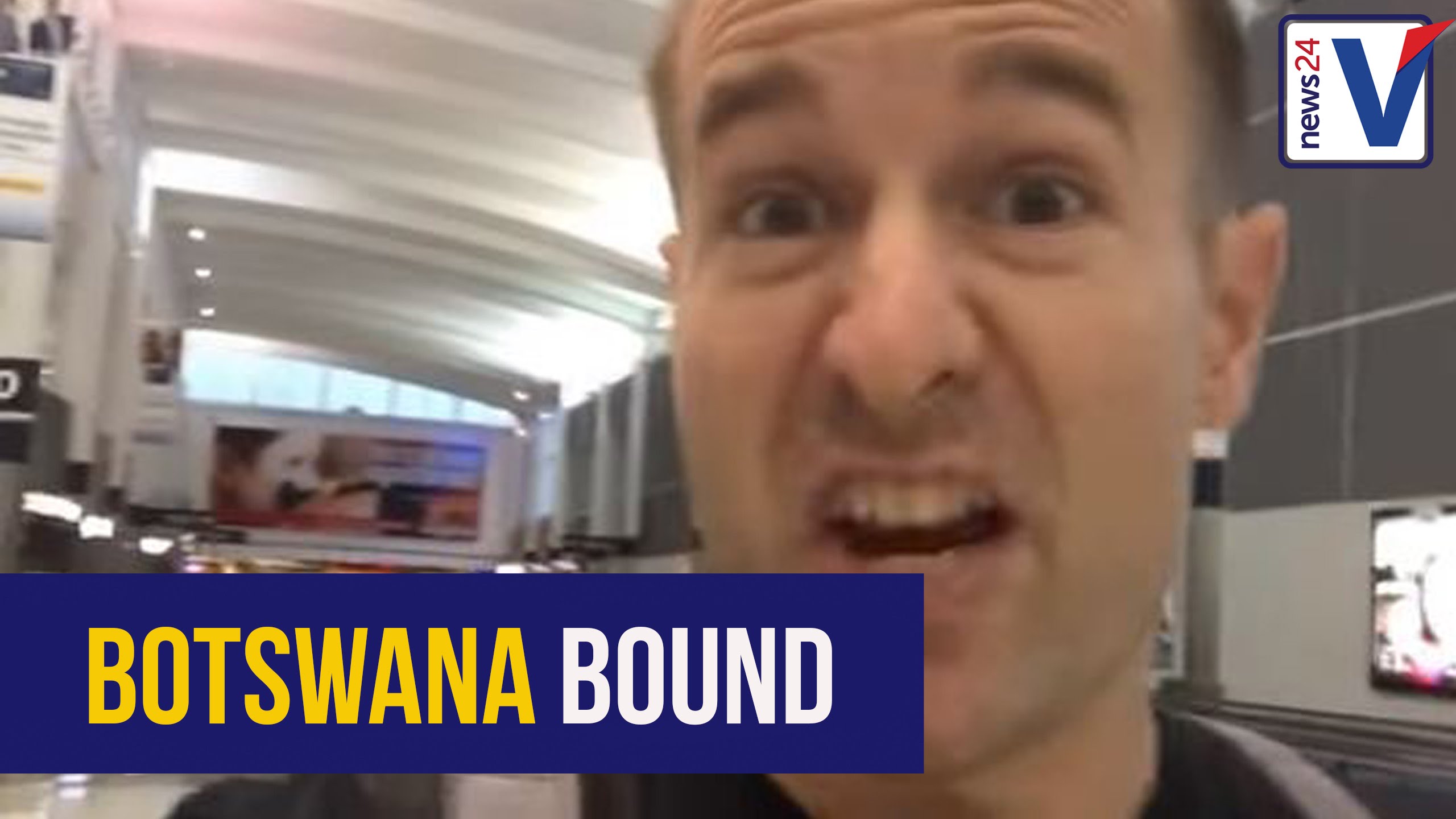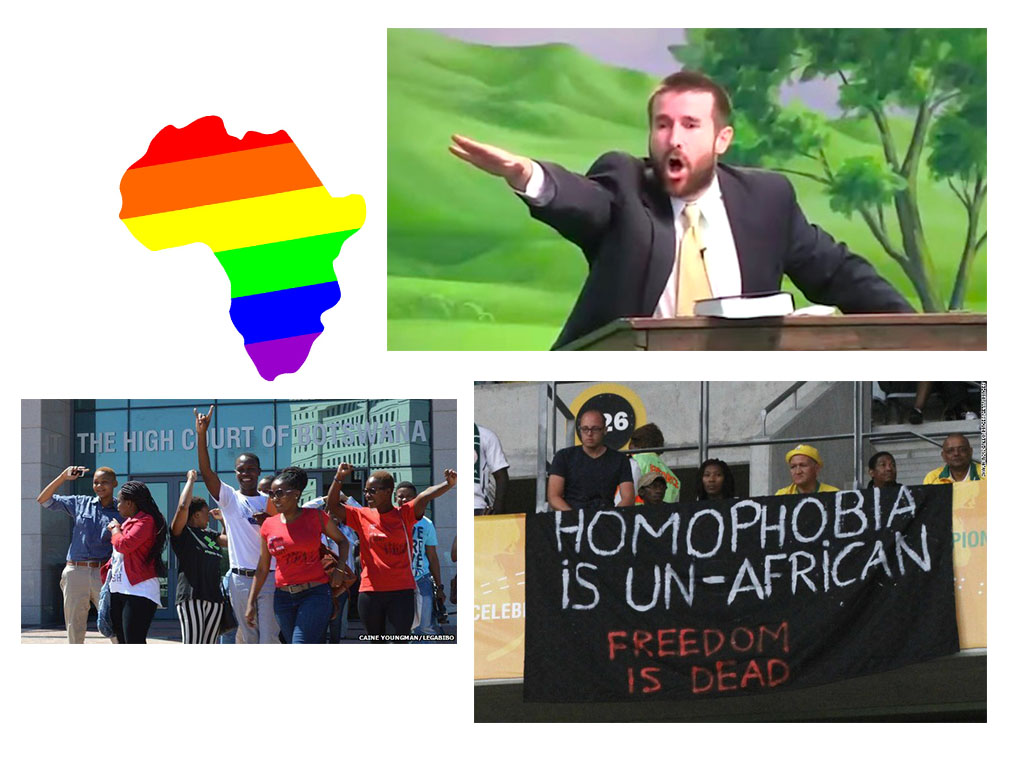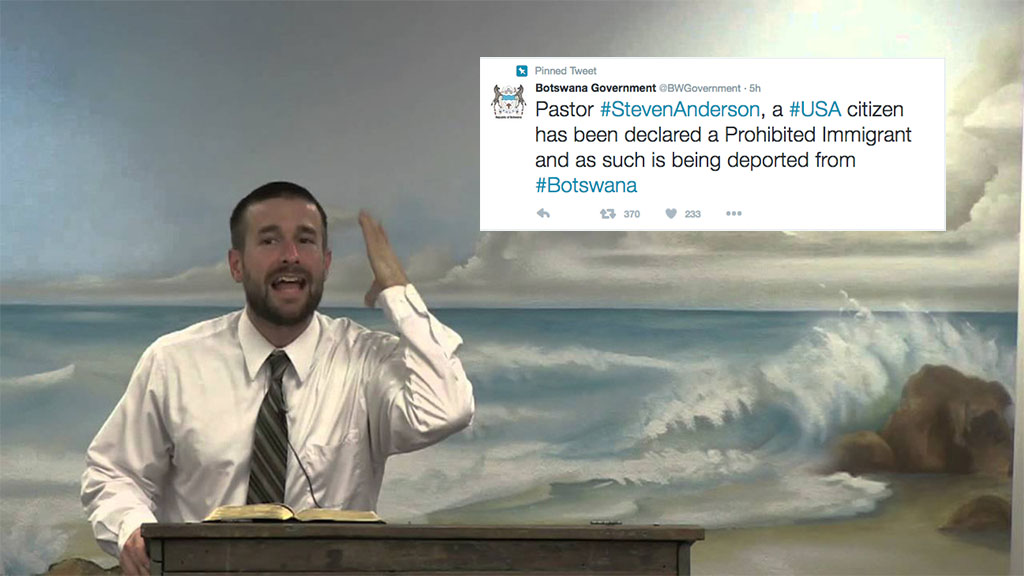South Africa and Botswana Ban Anti-Gay Pastor, Which is Kinda Cool
By Werner Coetzee
For a small country of about two million people, Botswana’s done something really awesome.
The leader of the Faithful Word Baptist Church in Arizona (why do all these hate-spewing churches have such vague and ominous names?), Steven Anderson was barred from entering South Africa in early September.
After the ban, his bitter gaze turned towards Botswana. He wrote on his personal Facebook, “I feel sorry for people who live in South Africa, but thank God we still have a wide open door in Botswana. Stand by for reports of MULTITUDES saved in Botswana, where religious freedom still exists.”
And then he got deported.

Bigots tend to confuse the idea of religious freedom – the principle of being able to choose a religion (or no religion at all) without government interference – with being able to meddle, judge and condemn others. Generally they don’t even do this for their religious beliefs, but more often a lifestyle that they don’t agree with or understand.
At Anderson’s church, which has been condemned by civil rights movements in the US, his sermons display a bizarre, obsessive fascination with other peoples’ sexuality.
He even called for a “holocaust” of LGBTQI people in 2014, saying “If you executed the homos like God recommends, you wouldn’t have all this AIDS running rampant.”
Bigots like this one always wait in the shadows for the opportune moment to strike and get maximum airplay, and Anderson is no different. In July 2016, just after the Pulse nightclub shootings in Florida, he said that now there’s 50 less paedophiles in the world.
“Obviously, it’s not right for someone to just shoot up the place because that’s not going through the proper channels. But these people all should have been killed anyway.”
South African LGBTQI activists successfully collected 60,000 signatures against his “soul-winning marathon” (creepy serial killer connotations of collecting souls to serve you in the afterlife), a bizarre 21st-century reenactment of the Victorian missionaries in Africa in the 1800s, who many believe are directly to blame for the virulent homophobia currently displayed in countries such as Nigeria and Uganda.
“It’s an evangelism campaign. It never had anything to do with homosexuality,” he told the South African news station Radio 702. “Only the media, because they’re obsessed with homosexuality, has spun it all to be about these perverts.”
Not even Desmond Tutu, retired Anglican Archbishop, icon of political freedom and key figure in SA’s post-apartheid reconciliation, was safe: he’s part of the “bunch of perverts” too, according to Anderson.
SA’s Home Affairs minister Malusi Gigaba pointed to the nation’s constitution, one of the world’s newest and most progressive (and one which legalised gay marriage in 2006) when he explained that Anderson was a foreigner who spewed hatred and advocated for violence, effectively shutting the front door on him.
This mirrors far-right Dutch politician Geert Wilders’s botched plan to deliver two speeches in Australia in 2012. The Q Society, a volunteer-run Islam-critical organisation (whatever that is), invited him to speak at their events, but although his staff and guards were granted visas within three days, Wilders was not.
It’s kind of cool when governments stand up for common sense (in-between cutting welfare and arguing with each other in air-conditioned chambers and such).
Anderson made it all the way into Botswana before the authorities realised why he was gracing them with his presence, but that ended quickly, with president Ian Khama telling Reuters, “We don’t want hate speech in this country. Let him do it in his own country.”
As encouraging as this intervention by two young democratic governments is, it presents an interesting conundrum to the LGBTQI situation in southern Africa.
All homosexual acts are illegal in Botswana, for example, and the Deputy Speaker of the Botswana National Assembly made severely homophobic remarks after someone proposed to him in 2011 that prisoners engaging in same-sex acts should be provided condoms.
However, former president Festus Mogae discouraged his police from harassing the community and said that interrogating the sex stigma is essential in the fight against HIV, which infects 1 out of 4 in the country.
The situation in many of the more progressive African countries is that despite a slow government acceptance of the LGBTQI community and the need for equal rights, the situation on the ground level can be very different.
There are encouraging signs, however. The Botswana Court of Appeal ruled in March 2016 that the government’s refusal to register the main LGBTQI rights group was unconstitutional, hopefully guaranteeing them a channel to better fundraising and awareness in the future.
In 2015, same-sex acts were legalised in Mozambique, and along with legalising same-sex marriage long before many other countries, South Africa’s had extensive anti-discrimination laws in place.
However, like South African constitutional scholar Pierre de Vos pointed out, although gay marriage represents the pinnacle of the LGBTQI rights movement, its true benefit is only to the privileged of the country (often the white minority).
In a country where the term “corrective rape” was coined for the gang-rape of gay women (often in townships) to “cure” them of being gay, the Civil Union Act just represents a piece of paper, enshrined far out of reach in the law books of the land.
Facing these facts, though, a guy like Steven Anderson getting booted out of Botswana sure is an encouraging sign of things to come.


